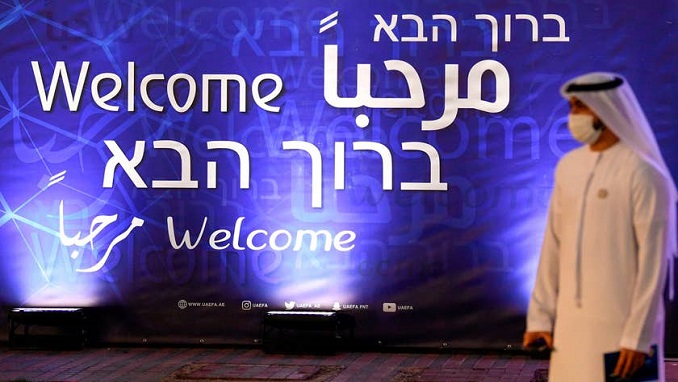For decades, Palestinians forgot a crucial mission. Focused on Western audiences and outflanked by an increasingly sophisticated Israel hasbara machine, they failed to settle in the hearts and minds of Gulf Arabs, Haaretz opinion piece explains.
Plenty of reasons have been offered for the breathtaking speed and scope of recent normalization agreements between Arab states and Israel – and without a quid pro quo in the form of Israel’s recognition of a Palestinian state.
Among the factors cited for the enthusiasm demonstrated by the United Arab Emirates, Bahrain, Sudan, and now Morocco are: securing advanced U.S. weaponry; sharing intelligence on Iran, keeping tags on the geopolitical ambitions of Turkey’s Recep Tayyip Erdogan and the Muslim Brothers, locking in Team Biden, and halting the impending annexation of the West Bank. All they had to do, in exchange, was to throw the Palestinians under the metaphorical bus.
Recognizing that Donald Trump was likely to lose the 2020 elections added fuel to their fervor. They knew there would never be a more sympathetic figure in the White House, sharing their world view not just on Iran, but on the (to them redundant) issues of democracy and human rights. Trump did not care about these issues. He was a businessman and a man who idolized authoritarian leaders. In their eyes he was their perfect American president. More than that, you’d be forgiven for thinking that the normalization wave was one of those rare moments of regional unanimity, and of perfect synchrony between rulers and ruled.
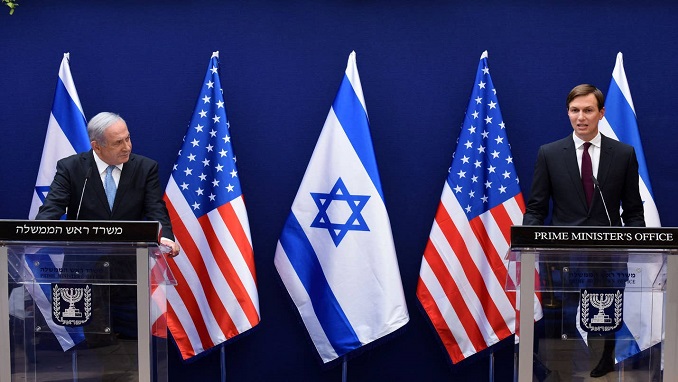
After all, the media is full of heartwarming stories of newly-minted business deals and delegations between Israel and the UAE in particular. And the UAE is the key player in the whole affair. Every single country that has recognized Israel has been uniquely vulnerable to diplomatic pressure from the Emirates.
But the Palestinian cause is still an emotional issue in the Arab world; it cannot be calculated in hard currency. Recent sharp comments by Prince Turki al-Faisal, who led Saudi intelligence for more than two decades and served as ambassador to the U.S. and UK, laid bare that divisions still exist in the Arab world on the question of normalizing relations with Israel.
Speaking at a conference in Bahrain, Prince Turki insisted that any normalization between Saudi Arabia and Israel can only happen alongside a lasting peace deal involving a two-state solution to the Israeli-Palestinian conflict. But the pushback has been overwhelmed by the sickly-sweet PR. How has this been possible? How have Palestinian national rights, an issue once so firmly rooted in the Arab consensus, been shunted off to official oblivion so quickly and easily?
It’s all about the narrative. In this case, it’s about Israel and its new allies mastering the message about normalization, their efforts to change Gulf attitudes towards the Palestinians and the Palestinians’ apparent tragic failure to root their narrative more deeply in the Gulf. Empathy for the plight of the Palestinians appears to have weakened amongst some Gulf elites. Or, at least, this is what Israeli hasbara or public diplomacy wants you to believe.
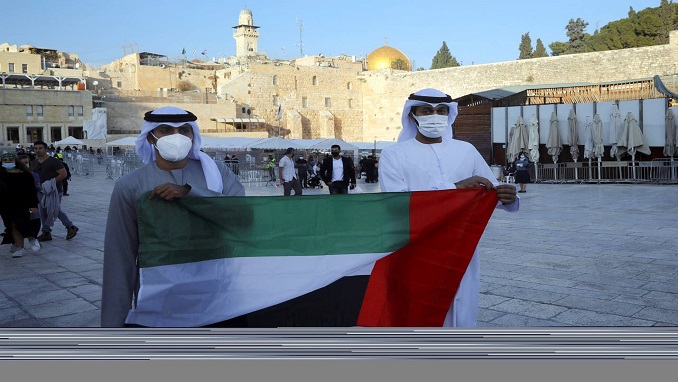
The younger generation of Arabs barely remember the first or second Palestinian intifadas, let alone the heyday of Arab nationalism. For this generation, colonialism is something they read about in books. That is a weak spot that hasbara efforts zoomed in on. The IDF, the Israeli foreign ministry and pro-Israel groups like the American Jewish Committee, have all pivoted over the last couple of years to target this younger generation, pushing Arabic-language social media to change the narrative about Israel.
This is not the case with Prince Turki, who is 75 years old, and who remembers those days well. It was not by accident that in his Bahrain speech he called Israel “the last of the Western colonizing powers in the Middle East.” The trouble is that beyond Israeli hasbara and Arab state media we don’t really know in depth what popular opinion in the Gulf really thinks about the deals. But there’s enough evidence to induce skepticism that grassroots Arab views back the normalization train.
It is not by chance that the Arab states that recognized Israel in contravention of the Arab Peace Initiative are ruled by authoritarian leaders where there is little space for civil society to openly criticize them. Where information about Arab public opinion is available, it demonstrates that there remains widespread sympathy for the Palestinians, or at least opposition to normalization before the creation of a Palestinian state.
Comparative politics researcher and professor Dana el Kurd has pointed to research by the Arab Center for Research and Policy Studies, for example, which showed that in Saudi Arabia, only 6 percent of those polled support diplomatic recognition of Israel. In Kuwait, 88 percent of the sample rejected such recognition, with 10 percent in favor. In Qatar, 88 percent also rejected recognition.
The UAE and Bahrain were not included in the survey, but el Kurd explained that Emirati phone numbers “received government WhatsApp messages before the [normalization] announcement, a warning that opposing ‘official policy’ was not permitted.” In Bahrain, where despite the repressive government, social media users still speak out more than their UAE and Saudi peers, there have been energetic anti-normalization campaigns online and by civil society organizations.
When I asked an Arab friend what his colleagues in the UAE thought about normalization, he told me that he hadn’t even bothered to ask them because “they wouldn’t say much in case they’re being surveilled.” He explained that a lot of his friends won’t speak up because they “have all their business and money tied up there” and dissent risks deportation. Although there isn’t firm data about Gulf responses to the reality of normalization, a sophisticated media campaign to make normalization more palatable to the Arab world has been going on for some time, even predating the Arab Spring. That concerted effort has now gone into overdrive.
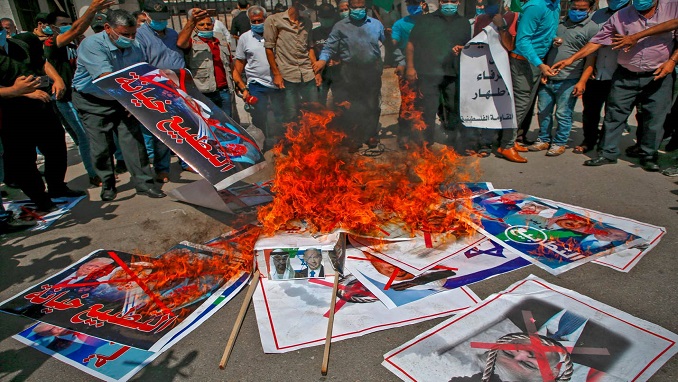
To draw the point home, let me recall two anecdotes.
The first was at a dinner party I attended in the home of Professor Walid Khalidi in Cambridge, Massachusetts, just over a decade ago, when the eminent Palestinian historian told me that he’d stopped writing op-eds in English language newspapers as he was more concerned about correcting misapprehensions about the Palestine issue in the Arab press. He was worried that the Palestinians had neglected the Arab world, and a new generation there was increasingly unfamiliar with the details of the Arab-Israeli conflict. I think his prescient fears have now come true.
The Palestinian leadership has consistently focused on Western capitals and neglected their regional backyard, not just in terms of focus but message, too. One size does not fit all. The narrative that works in DC doesn’t necessarily work in Dubai.
Anti-colonial discourse about self-determination and human rights may play well on progressive university campuses and some television networks, but it does not work everywhere. In Gulf states, where individual and minority rights are severely restricted, it is no longer obvious why they should support Palestine. And the trope of Israel as the last bastion of European colonialism in the Middle East is a hard sell when, for years, Israel has successfully re-branded itself as the ultimate “start-up nation,” a country to emulate – not least for oil-receding Gulf economies.
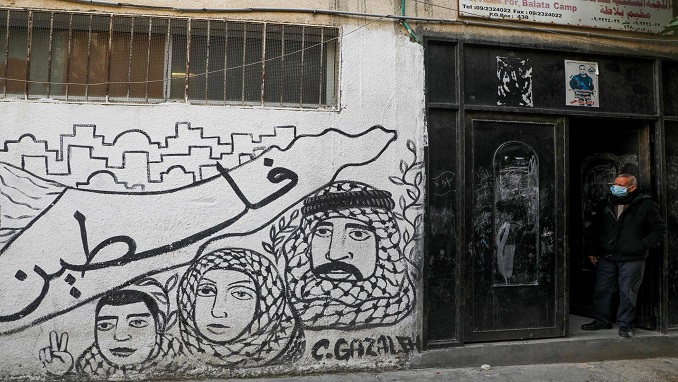
The second anecdote is more recent. Another Arab friend who’d recently moved to Singapore from the Gulf told me while she was in Dubai she’d signed up to the email list for Daniel Pipes’ Middle East Forum, thinking that it was a balanced think tank on Middle East issues.
To any informed observer, and any Palestinian worth their salt, the Middle East Forum (whose stated mission is to protect “Western values from Middle Eastern threats”) could hardly be described as “balanced.” But Pipes has, almost incredibly, succeeded (together with likeminded groups) in establishing a foothold and following in the Arab world, an area that Palestinian activists have neglected.
Only when, last year, my friend received an email from the Forum calling for donations for “Israel’s Victory project” did the alarm bells start ringing. She insisted I watch the accompanying video which offered the thesis that the conflict would only end “when the Palestinians give up.” She’d been pulled into a false sense of Pipes’ “moderation,” just as Gulf Arabs have been. They are far less au fait with the conflict than Palestinians necessarily are. They cannot detect the nuances and biases advanced by groups whose agendas appear to be reasonable, until they rip off the mask with initiatives like “Israel’s Victory Project.”

The influence of Israeli hasbara in the Arab world is not just the result of a failure of Palestinian strategy, but also, it would appear, the success of Israeli hasbara in shaping the way some Gulf elites view the Israel-Palestine conflict. It has become sophisticated, amplifying Israel’s message on social media though state-backed Twitter influencers and even a bot network operated by sources in the UAE.
It is also appears as a form of elite socializing: the chumminess that comes from discrete dinners, think tank discussions, and of the prevalent pro-Israel tone of much of popular media and entertainment, from CNN to Fox News, Hollywood to Netflix. That constant distortion of how we read reality, privileging Israel’s narrative over the Palestinians, now has real world consequences. And Gulf politicians and business leaders have recently demonstrated how deep that dissonance goes.
Consider Trump’s so-called “Deal of the Century,” which was written in such a way that no Palestinian leader could ever accept it. The plan literally crossed every single Palestinian red line.
No Arab familiar with the geography of Jerusalem (unless “familiarity” means Google maps) could genuinely believe that a Palestinian capital could be established in Abu Dis and include the sites sacred to Palestinian Muslims and Christians in or near Jerusalem’s Old City, from which it’s separated by an eight-meter-high concrete wall and the Mount of Olives.
The same standard of ignorance applies for how the Plan legitimizes Israeli settlements, annexing the Jordan Valley, and potentially stripping Israeli citizenship from tens of thousands of Arab Israelis who live in ten border towns. Yet the Emirati and Bahraini ambassadors had no qualms about endorsing it. Sensibly, Saudi Arabia, Egypt, and Jordan, more familiar with the situation on the ground, refused to attend the Plan’s White House launch.
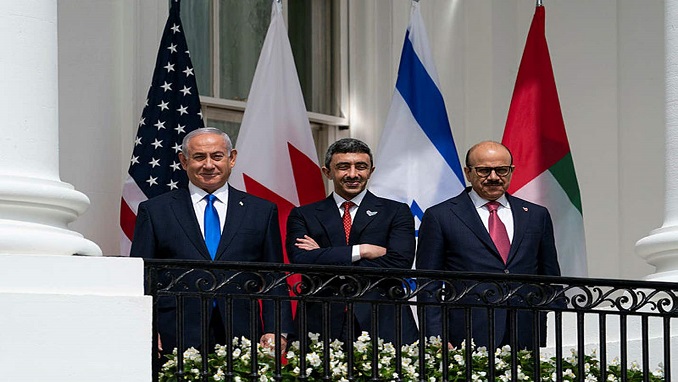
When a UAE business delegation recently visited the Al-Aqsa Mosque they were chased out by angry Palestinian worshippers. The Palestinians had good reason to be upset, beyond their perception of Emirati treachery, and again, it rests on Gulf ignorance, or indifference. Arab VIPs have a specific entrance, the Tribes Gate, manned by the Waqf; there are nine other gates for Muslim worshipers.
But the UAE delegation accessed the Mosque compound, accompanied by Israeli police through the one gate set aside for non-Muslims, administered by Israel and the cause of much friction between Israel and Jordan. Perhaps the UAE delegation was misled by their Israeli hosts, but they should have done their homework. Jerusalem, despite appearances, remains an occupied city. Most Palestinians, including those in Gaza and the West Bank, cannot visit the sanctuary.
Perhaps the most bizarre Gulf error of judgement was when Bahrain’s Minister of Trade stated the kingdom would make no distinction between importing products produced in Israel or from settlements in the occupied West Bank and Golan Heights. It was a major faux pas, which led to Manama retracting the statement.
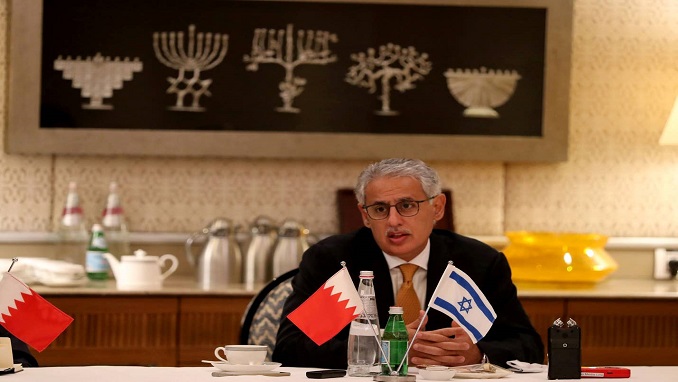
There’s no need to accuse the Bahrainis of malice when it’s so patently clear that some Gulf leaders do not really know what they are doing. But by far the most unfortunate consequence of normalization is how it is legitimizing the Israeli Right. Consider the sheer number of right-wing journalists and settler groups that are flocking to Dubai in record numbers.
Then there are the shady business deals, not forgetting the UAE royal who bought a stake in Israel’s most racist, right-wing football club, Beitar Jerusalem, infamous for its refusal to hire Arab players. It is, needless to say, galling that normalization is burnishing the prestige of one of the most dishonest leaders in Israel’s history. Whatever you may think of their politics, Netanyahu is no Yitzhak Rabin or Menachem Begin. They at least had integrity.
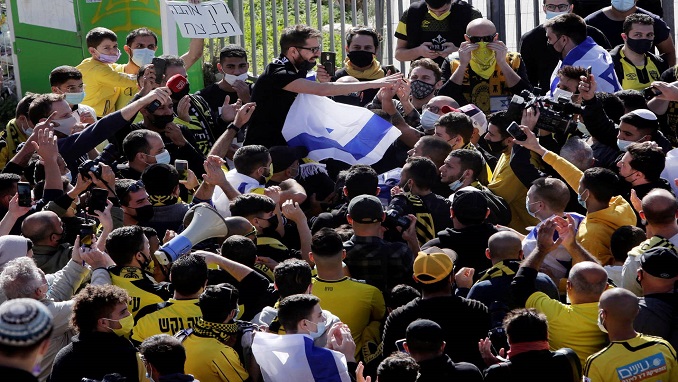
I am all in favor of “normalization,” if normalization means the establishment of two independent states living in peace between the Jordan River and the Mediterranean, very much in the spirit of the Arab Peace Initiativethat Saudi’s Prince Turki invoked. At the same time, the Palestinians need to recognize how far their message has failed to “settle” in Arab Gulf hearts, especially in their ruling elites, since before the Arab Spring.
It’s incumbent on the Palestinians to redouble efforts to build a coalition – one that does not replicate the existing divisions in the Arab world – of those governments committed to a fair resolution of the conflict, and to find a way to “sell” their cause that appeals to younger Arab generations, beyond the West’s often receptive younger audiences. That’s essential, because even if they’ve been outmanoeuvered by Tel Aviv and Abu Dhabi, there’s no way Palestinians will ever sit back and accept the Greater Israel project, or “give up” in the face of Israeli and Gulf triumphalism.
